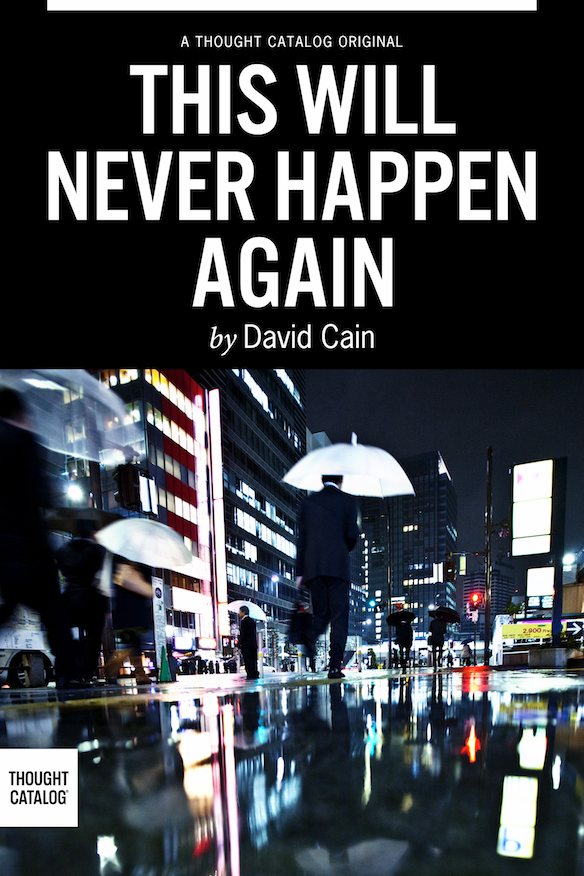
For a long time I didn’t feel like I had a lot of people to relate to. Being shy, I didn’t find myself in a lot of conversations with people I didn’t know, and when I did, I was uncomfortable. Bonds did form, deep ones sometimes, but it was always a product of circumstance. I made friends with people I was in class with or worked with, because some interaction is bound to happen in those places. But to actually form a relationship without the help of circumstances was something I had never experienced.
I’ve shed much of my shyness through deliberately speaking up more and other forms of comfort-zone-pushing, but I eventually made a discovery that really opened the floodgates for me. I see the potential for connection in just about everyone now; I no longer feel bound by differences of age, interests, cultures, or opinions.
The secret to connecting with people is this:
Always try to understand what people really mean when they speak.
It doesn’t sound like a huge revelation. Many of you are probably thinking that you already do that anyway. But chances are you don’t, at least not very well. Certainly we know what the other person is saying, but most of the time, we don’t particularly care for the topic, or if we do, our minds are already busy forming a response. Sometimes we take the liberty of finishing the person’s sentence, or even beginning one of our own before they finish. This is fairly normal behavior, at least in my culture, and as such, it isn’t considered terribly rude in most circles.
Next time you’re out, try watching an exchange between two people. In most conversations I witness, each person appears to clearly hold his own opinions as being of primary importance, and the other’s as being worth considerably less, though each might pretend otherwise. It’s not that we’re arrogant, it’s just human nature. Each person is usually waiting for their turn to talk, perhaps tossing in some polite remarks and nods so as not to appear rude.
However, things do flow more smoothly when one person’s opinion matches the other’s. That’s when real listening happens without any effort, and conversation is unhindered. But because of this human tendency to revere our own opinions, many people find they can only really connect with people who carry similar views. With friends and family, we’ve already established some common ground, so it’s easy to really communicate with them.
But that leaves only a small segment of the population with which we have the potential to connect. Most people will hold no interest for us. I think part of the problem is that we think that the other person’s message is what they say.
What they say, in terms of what words come out of their mouth, is just a tiny fraction of what they are communicating. The real message is not what they say. The real message is why. Where are these words coming from? That why is what tells us who they are and what they value.
The speaker is rarely just trying to relay basic information to you. Almost always, they are speaking up because there is some visceral desire to express what they are feeling right now. Speech is always triggered by a passion, a worry, a judgment, a realization, or some other internal encounter with an emotion of some kind. If your friend suddenly brings up her job, it isn’t because she wants you to be well-informed about her situation at work, it’s because her job is on her mind and she wants to get it out of her mind. Respect that need and she will not only be grateful, but suddenly she’ll be much more likely to take an interest in what’s on your mind.
If you want to connect with people, make this your social mantra:
Always let the speaker be the star.
Whatever their performance is, whether it’s a story about something their kid is doing in school, a trip to Europe they’re planning, a complaint about what so-and-so said to them earlier — be the most respectful audience you can be. The chair they are sitting in, the doorway they are standing in, wherever they are — that’s their stage, their pulpit. Let them say their piece, no matter what you think of the story, or what you would do in their place.
Really, really listen to what they say, and recognize that they are saying what they’re saying because it is important to them. In every single thing every person says, they reveal what they value. When you can get a glimpse of what people value, you can see the humanity in them. And that is how humans connect: by understanding each other’s values. You don’t have to share those values, though you’ll certainly find you share something with everyone.
I am not into hunting. I have no interest in shooting a deer or a goose for fun. But I do know some who do, and in my more conscious moments, I can genuinely appreciate everything a friend tells me about hunting. The specifics of his anecdotes are not so important; it’s the glint of excitement in his eyes, and more importantly, the enthusiasm that swells in him when he realizes somebody is actually being receptive to his story. I reserve my judgments; there’s no need to batter anyone over the head with my own stances. There would be no communication at all if I did that. Judgments just get in the way and do neither party any good.
To simply know what it feels like to hold something dear, and understand that we all know that feeling — that means you can understand anybody. But only if you genuinely make a point of seeing where they’re coming from. Our failing is that we’re usually much more concerned with being understood than with understanding. Those who reverse those two priorities are very effective communicators and will never have a shortage of friends.
The Barrier
Distraction, in some form, is what typically prevents understanding. Distraction is letting your attention wander from the other person’s performance. It could be captured by what they’re wearing, a TV screen, a book in your hands, anything around you. But the most common place for it to go is into your own (the listener’s) thoughts. Most people are distracted by what they themselves would like to say. Sometimes they want to respond before the person is finished, other times they simply have their own opinion locked and loaded to fire off as soon as there is a break in the dialogue.
Forget what you want to say, just drop all thoughts about yourself and your interests, and let them speak their mind. Think of it this way: when you are listening, the most important thing in the world is to figure out where the other person is coming from. Make it your entire purpose on earth — for the thirty-seven seconds it takes for them to tell their little story — to understand what feelings are behind what they say. If, when they stop speaking, you still don’t understand where they’re coming from, ask a question.
All it takes is putting your own interests on hold until they are able to get their point across to you.
The habit of really listening to what someone is saying is a rare one. And the people who do it can connect with anyone. I’ve understood the value of being a good listener for a long time, but I didn’t really know what it meant to be one. I know now: it means to cherish other people’s desire to express themselves more than your own desire to express yourself. Really, just completely defer your interests for as long as it takes for you to understand them.
That idea might scare some people. Surely our own opinions are important too!
Relax. You don’t have to worry about being understood, and here’s why: when you make a point of dumping your own thoughts to make room for understanding, people are so grateful that you are trying to see their perspective, they’ll be happy to listen to you afterward. By then, what they wanted to say is no longer on their mind, so then they won’t be distracted by it while you are speaking.
In other words, take turns understanding each other, but insist on going first. Let the other person have the privilege of being the first one to be understood. The biggest distraction to understanding someone else is self-importance. Needing to say something means you have to be thinking about it, and thinking about it means you have very little mental capacity left for empathy. Free up yours, and it will free up theirs.
Imagine what the world would be like if everyone did this.
That’s all anyone wants, to be understood. Give it to them. Give the greatest of all gifts, every time you have the opportunity. Unless the building is on fire, give yourself permission to let the speaker be the center of your universe, just for a minute. It won’t hurt, I promise. Forget what you were going to say. Forget how you might wish to respond. You can do that all later. Abandon everything else in the world for the few seconds it takes to let the other person finish their thought.
At first, you will probably experience some angst at the thought of abandoning what you were going to say. Drop it anyway, and see if your life suffers. (It won’t.) So what if you didn’t get to make the wisecrack you had saved up? So what if you don’t get to tell them about your upcoming trip to Europe?
Once you resolve to let all that baggage go, it’s actually a tremendous relief. It’s like dropping an armload of textbooks you’ve had held against your chest. You no longer have to struggle to keep track of your thoughts. You can safely let them all go. Let them drift away, unfinished and unfollowed. 99% of them never needed to be said anyway. And don’t worry, the truly important thoughts will be persistent enough to come back to you when nobody else is speaking. You will get your chance to make yourself understood, just don’t try to be first in line.
There is such a strong compulsion to make our own opinion known, that even the most courteous among us will often practically ignore what the person says, or even interrupt them. Most of the time the hurried remarks we do make are just little indulgences, self-important grabs at approval or admiration.
I know that I personally have a history of saying things for the sole purpose of sounding clever, or arousing the fondness of others. I built my whole identity on looking smart, for years and years. I didn’t know who I was without that approval, so I was constantly digging for it. It’s really just a bad habit, to grab at the little ego boosts those self-indulgent remarks provide. I would even call it an addiction, but that’s a whole other post. For now let’s just say many of us are very strongly drawn to seeking approval by pointing out certain things or telling certain stories, and it impedes understanding others considerably.
The truth is, your opinions probably aren’t that important. And neither are the other person’s. Opinions will come and go, they speak mostly to our emotional state at the time we declare them. There is usually very little logic behind them, just feelings. And that’s okay. There is a brilliant Zen saying: Do not seek the truth, only cease to cherish opinions. This is not a prescription for dismissing what the other person is saying, only for cherishing the human being behind the words, rather than the back-and-forth play of semantics and mental positions.
I’ll be the first to say I’m really not all that good at this yet. I’ve been getting better and better at relating to people, but old habits do indeed die hard. But I now understand clearly where I went wrong so often, and I know what to do instead. The specific concept of letting others be the star only came to me fairly recently, and I’m astounded at the results so far. My friends and family suddenly became ten times more interesting, not to mention strangers, clients, clerks and passers-by. I no longer have that bubble of angst growing inside me when someone else is speaking, because I know I can safely drop whatever I was going to say. More and more I get to witness that wonderful sense of gratitude that washes over people when someone makes a genuine effort to understand them.
And when you do get your chance to speak, their eyes will be glued to you, and you’ll probably have the best audience you ever had. 






